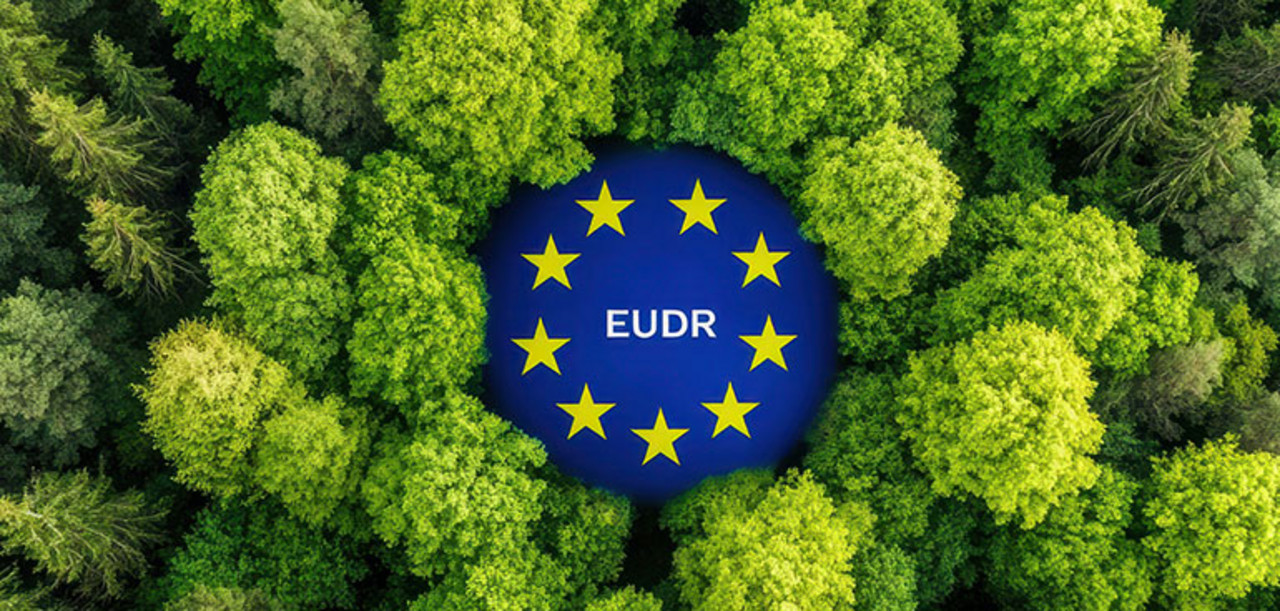From sideshow to core business imperative of the 21st century
Next to economic considerations, companies nowadays must also address sustainability issues. This includes ecological and social impacts of their operations and requires a comprehensive and systematic approach to ensure responsible and sustainable business practices.
The EU Taxonomy, the EU Corporate Sustainability Reporting Directive (CSRD) in conjunction with the European Sustainability Reporting Standards (ESRS) and the Corporate Sustainability Due Diligence Directive (CSDDD) form the framework for the new sustainability reporting process, which will put sustainability reporting in Europe on a new level of quality.
Current situation
Omnibus Initiative
Status: March 2025. The EU Commission is planning to significantly simplify sustainability reporting as part of the Omnibus Initiative. The aim is to reduce mandatory disclosures by at least 25%, and by as much as 35% for SMEs. The regulations affected are the Corporate Sustainability Reporting Directive (CSRD), the Corporate Sustainability Due Diligence Directive (CSDDD), the Carbon Border Adjustment Mechanism (CBAM) and the EU Taxonomy Regulation.
The focus of the initiative is to remove non-material or overlapping information. Particularly:
- Fewer relevant data points: Non-critical information should be omitted.
- Distinction between mandatory and voluntary disclosures: Clearer distinction between mandatory and voluntary disclosures.
- Raising the thresholds: Postponement of reporting requirements for companies.
Voluntary Reporting Standard VSME
Status: March 2025. The Voluntary Reporting Standard VSME (Voluntary Sustainability Reporting Standard for SMEs), which was originally intended for SMEs only, will now also be of interest to companies that are expected to be exempted from the reporting obligation for 2026 under the Omnibus-Initiative. This reporting standard facilitates a simplified and more flexible approach to sustainability reporting. Companies can decide for themselves which ESG aspects they disclose without having to fulfil the full scope of the CSRD. All report components within the VSME can also be included in the CSRD report.
Germany's delayed implementation of the CSRD
Status: January 2025. The introduction of the Corporate Sustainability Reporting Directive (CSRD) into German law was not implemented as planned in 2024. This puts Germany in a minority of countries that have not yet implemented the law and are therefore in breach of EU law. Consequently, the EU Commission initiated infringement proceedings against Germany and 16 other member states in September of last year. As of January this year, implementation was pending in only five other countries, in addition to Germany.
Opportunities and the need for green transformation
The current focus is on regulatory developments for medium-sized corporations. Capital market-oriented companies keep on preparing appropriate sustainability reports. It is also important to note that many business partners increasingly demand sustainability data, a significant proportion of customers expect sustainable business practices, and that sustainability and its indicators play a major role, also for investors and financial institutions. Pressure is coming from all sides, not just from regulation. Furthermore, it has become increasingly evident over the past year that the rising costs of fires, floods and droughts, which are exacerbated by climate change, must be considered alongside the costs of climate protection. However, effective climate protection and adaptation strategies also require a reliable data base at company level in order to develop concepts, measures and targets.
The automotive industry's example illustrates the opportunities that can arise when a company focuses on sustainable products at an early stage. This applies to the pioneering American company as well as the increasingly successful Chinese suppliers. It is also crucial to consider the potential strategic competitive advantages that could emerge from a green transformation, and to ensure that sustainability is not merely seen as a means of meeting regulatory requirements. Supply chain reporting to automotive companies, most of which are listed on the stock exchange, also plays an important role in addressing the issue. Sustainability is not a transient issue; it is a long-term commitment.
Get in touch with us for an assessment of recommendations for action and arrange a consultation with our ESG specialists.
Get in touch
The specific circumstances of the individual case must of course always be taken into account.
If you have any questions, please reach out to us!
Previously, only a limited number of companies were obliged to disclose the following topics in their management report or a separate sustainability report in accordance with the CSR Directive Implementation Act (CSR-RUG):
- Environmental concerns
- Social concerns
- Employee concerns
- Human rights
- Combatting corruption and bribery
No specifications were made in terms of content beyond the above-mentioned requirements. Both national and European standards were used. In Germany mainly the reporting standards of the Global Reporting Initiative (GRI) and the German Sustainability Code (DNK) were applied.
The changes in sustainability reporting
With the new Corporate Sustainability Reporting Directive (CSRD), the obligation for sustainability reporting will be extended to around 50,000 companies across the EU. Previously only an estimated 12,000 companies were obliged to report on sustainability topics. The European Sustainability Reporting Standards (ESRS), linked to the CSRD, further define the content requirements of the CSRD and specify the information that must be included in a sustainability report. In Germany, the CSRD will be implemented by the CSRD Implementation Act, its draft legislation published by the Federal Ministry of Justice at the end of March 2024, and government draft available since the end of July.
Regardless of whether you speak about sustainability management, sustainability reporting, CSR management, CSR reporting, Corporate Social Responsibility (CSR) or sustainability reporting, shareholders and stakeholders are increasingly expecting actions to follow words.








 LinkedIn
LinkedIn Xing
Xing Email
Email








